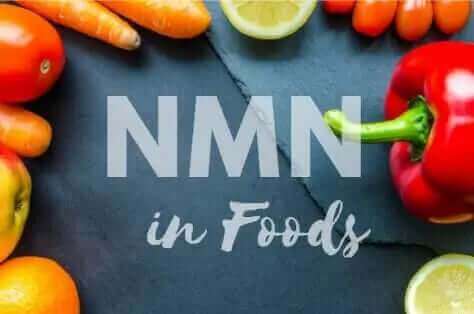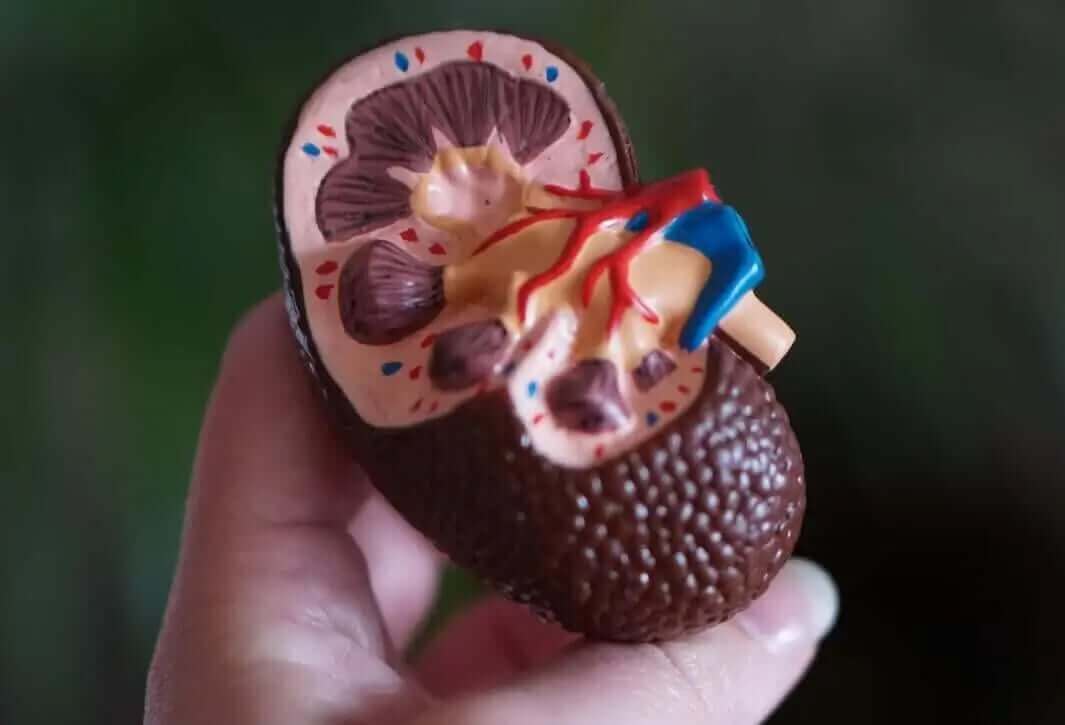NMN and Cancer Risk: The Complete Guide to Understanding Nicotinamide Mononucleotide Safety
The relationship between NMN (nicotinamide mononucleotide) and cancer risk has sparked considerable interest among researchers and health enthusiasts. If you're considering NMN supplementation or want to understand its safety profile, this comprehensive guide explores what current science reveals about NMN's impact on cancer prevention and cellular health.
Many people wonder whether taking NMN supplements could increase their cancer risk. The good news? No scientific studies have demonstrated that NMN causes cancer. In fact, emerging research suggests that nicotinamide mononucleotide may actually support your body's natural defense mechanisms against cellular damage and mutations that can lead to cancer development.
Understanding How NMN Works in Your Body
NMN plays a crucial role in cellular energy production and DNA repair. As a precursor to NAD+ (nicotinamide adenine dinucleotide), NMN helps maintain healthy cellular function throughout your body. This fundamental biological process supports everything from energy metabolism to protecting your genetic material from damage.

Your cells naturally produce NMN, but levels decline with age. This decrease in NMN production can compromise cellular repair mechanisms and energy production, potentially leaving cells more vulnerable to damage and dysfunction. By supplementing with high-quality NMN, you may support your body's natural repair and maintenance processes.
The Science Behind NMN and Cancer Prevention
Research into NMN's potential cancer-preventive properties reveals several promising mechanisms. Studies have shown that maintaining healthy NAD+ levels through NMN supplementation can enhance DNA repair processes, potentially reducing the accumulation of mutations that drive cancer development.
DNA Protection and Repair
One of the most exciting aspects of NMN research involves its role in DNA maintenance. Multiple studies have demonstrated that NMN reduces DNA damage in various cell types:
- Human fibroblasts showed decreased DNA damage when treated with NMN [4]
- Irradiated blood cells experienced protection from radiation-induced damage [5]
- Kidney cells demonstrated improved DNA integrity and cellular function [6]
These findings suggest that NMN supplementation could help maintain genetic stability, a key factor in preventing cancer initiation.
Immune System Enhancement
Your immune system serves as your body's first line of defense against abnormal cells. Research indicates that NMN boosts immune function in ways that may help prevent cancer development. Scientists discovered that oral NMN administration increased Natural Killer (NK) cell activity in mice [7]. NK cells specialize in identifying and eliminating potentially cancerous cells before they can establish tumors.
Addressing Common Concerns: NMN and Existing Cancer
While NMN shows promise for cancer prevention, questions arise about its use in people already diagnosed with cancer. This concern stems from a fundamental biological principle: substances that support healthy cell function might also benefit cancer cells.
The Nutrient Paradox
Many essential nutrients face this same paradox. Consider folate, a B-vitamin crucial for DNA synthesis:
- Prevention phase: Adequate folate levels help prevent DNA mutations that could lead to cancer
- Treatment phase: Cancer cells may use folate for rapid growth and division
- Deficiency risks: Low folate levels increase cancer risk through DNA instability
- Optimal balance: Maintaining appropriate levels supports health without excess
Similar principles may apply to NMN. While it supports healthy cellular function and may prevent cancer initiation, theoretical concerns exist about providing additional resources to established cancer cells.
Current Research Findings
Interestingly, recent studies challenge the assumption that NMN necessarily accelerates cancer growth. Research published in 2021 found that NMN administration to mice with cancer did not increase tumor growth [2]. This suggests that NMN's effects on cancer may be more nuanced than initially thought.
NMN's Role in Cancer Treatment Support
Emerging research explores how NMN might enhance cancer treatment effectiveness rather than hinder it. A groundbreaking study revealed that NMN could make tumors more responsive to immunotherapy [3]. This finding opens exciting possibilities for using NMN as an adjunct to conventional cancer treatments.
The study also noted that mice receiving NMN alongside cancer treatment showed no increase in tumor size compared to untreated controls. This observation provides reassurance that NMN may not accelerate cancer growth even in the presence of existing tumors.
Practical Guidance for NMN Supplementation
If you're considering NMN supplementation, understanding how to use it safely and effectively becomes paramount. Here are evidence-based recommendations for different situations:
For General Health and Prevention
For individuals without cancer seeking to optimize cellular health and potentially reduce cancer risk, NMN supplementation appears safe and beneficial. Consider these guidelines:
- Start with a moderate dose and gradually increase as tolerated
- Choose high-quality NMN products from reputable manufacturers
- Maintain consistent daily supplementation for optimal results
- Combine NMN with a healthy lifestyle including proper nutrition and exercise
For Those with Cancer Concerns
If you have a personal or family history of cancer, consult with healthcare providers before starting NMN supplementation. They can help you weigh potential benefits against any theoretical risks based on your specific situation.
The Bigger Picture: NMN and Longevity
Beyond cancer prevention, NMN supports overall longevity through multiple mechanisms. By maintaining cellular energy production, supporting DNA repair, and enhancing immune function, NMN addresses several hallmarks of aging simultaneously. This comprehensive approach to cellular health may explain why many people report feeling more energetic and vital when supplementing with NMN.
Cellular Energy and Metabolism
NAD+ levels naturally decline with age, leading to reduced cellular energy production. NMN supplementation helps restore NAD+ levels, supporting:
- Mitochondrial function and energy production
- Cellular repair and maintenance processes
- Metabolic efficiency and fat utilization
- Overall vitality and physical performance
Epigenetic Regulation
NMN influences epigenetic factors that control gene expression. By supporting proper epigenetic regulation [1], NMN may help maintain youthful cellular function and reduce age-related disease risk, including cancer.
Making Informed Decisions About NMN
When evaluating whether NMN supplementation aligns with your health goals, consider both the scientific evidence and your individual circumstances. The current body of research suggests that NMN offers significant potential benefits for cellular health, DNA protection, and possibly cancer prevention.
Key takeaways from current research include:
- No evidence shows that NMN causes cancer in healthy individuals
- Multiple studies demonstrate NMN's DNA-protective effects
- NMN may enhance immune system cancer surveillance
- Research on NMN and existing cancer remains limited but shows promise
- NMN could potentially improve cancer treatment effectiveness
Looking Forward: The Future of NMN Research
Scientific understanding of NMN and cancer continues to evolve. Ongoing clinical trials explore NMN's effects on human health, including its potential role in cancer prevention and treatment support. As more data emerges, our understanding of how to optimize NMN use for maximum benefit will continue to improve.
Researchers are particularly interested in understanding:
- Optimal dosing strategies for different health goals
- Long-term safety profiles in diverse populations
- Potential synergies with other interventions
- Specific mechanisms of cancer prevention
- Applications in precision medicine approaches
Frequently Asked Questions About NMN and Cancer
Does NMN cause cancer?
No scientific studies have shown that NMN causes cancer. In fact, research suggests NMN may help prevent cancer by supporting DNA repair mechanisms, reducing cellular damage, and enhancing immune system function. The confusion often arises from theoretical concerns about providing nutrients to existing cancer cells, but current evidence does not support NMN as a cancer-causing agent.
Can I take NMN if I have a family history of cancer?
If you have a family history of cancer, NMN supplementation may actually be beneficial for prevention. NMN supports DNA repair and cellular health, potentially reducing your risk of developing cancer. However, it's always wise to consult with your healthcare provider before starting any new supplement regimen, especially if you have specific health concerns or genetic predispositions.
How does NMN help prevent cancer?
NMN helps prevent cancer through multiple mechanisms: it enhances DNA repair processes, reduces oxidative stress and cellular damage, boosts immune system function (particularly Natural Killer cell activity), and supports healthy cellular metabolism. By maintaining these protective systems, NMN may help prevent the cellular changes that lead to cancer development.
What's the best NMN dosage for cancer prevention?
While optimal dosages are still being researched, most studies use doses ranging from 250mg to 1000mg daily. For general health and potential cancer prevention benefits, starting with 250-500mg daily and gradually increasing based on your response may be appropriate. Always choose high-quality NMN supplements and consider working with a healthcare provider to determine the best dosage for your individual needs.
Should cancer patients avoid NMN?
This remains an area of active research. While theoretical concerns exist about providing nutrients to cancer cells, recent studies suggest NMN may not accelerate tumor growth and could even enhance certain cancer treatments like immunotherapy. Cancer patients should always consult with their oncologist before adding any supplements to their treatment plan.
How long does it take for NMN to show benefits?
Many people report feeling increased energy within 2-4 weeks of starting NMN supplementation. However, the cellular protection and DNA repair benefits that may help prevent cancer likely develop over months to years of consistent use. Think of NMN as a long-term investment in your cellular health rather than a quick fix.
Can NMN be combined with other supplements?
Yes, NMN can be safely combined with many other supplements. It may work synergistically with resveratrol, quercetin, and other compounds that support cellular health. Some people combine NMN with vitamin D, omega-3 fatty acids, and other nutrients for comprehensive health support. Always introduce new supplements gradually and monitor your response.
Are there any side effects of NMN related to cancer risk?
Current research has not identified any NMN side effects that increase cancer risk. Most people tolerate NMN well, with minimal side effects. Some individuals report mild digestive changes or flushing when first starting supplementation, but these typically resolve quickly. The safety profile of NMN appears favorable, though long-term studies continue to monitor for any potential concerns.
What makes pharmaceutical-grade NMN different?
Pharmaceutical-grade NMN undergoes rigorous testing for purity, potency, and safety. High-quality NMN products are manufactured in certified facilities, tested for contaminants, and verified for accurate dosing. This quality assurance becomes especially important when using NMN for health optimization and potential cancer prevention, as you want to ensure you're getting a pure, effective product.
How does NMN compare to other anti-cancer supplements?
NMN offers unique benefits compared to other supplements. While antioxidants like vitamin C combat oxidative stress, NMN works at a more fundamental level by supporting cellular energy production and DNA repair. Unlike single-target supplements, NMN addresses multiple aspects of cellular health simultaneously, making it a comprehensive option for those interested in cancer prevention and overall longevity.
Conclusion: Embracing NMN for Optimal Health
The relationship between NMN and cancer represents a fascinating area of scientific discovery. Current evidence strongly supports NMN's safety and potential benefits for cancer prevention through enhanced DNA repair, immune function, and cellular health maintenance. While questions remain about its use in active cancer cases, the overall picture suggests that NMN supplementation offers a promising approach to supporting long-term health and vitality.
As you consider incorporating NMN into your health regimen, remember that it works best as part of a comprehensive approach to wellness. Combine supplementation with healthy lifestyle choices, regular medical check-ups, and open communication with your healthcare providers. With continued research and growing understanding, NMN may prove to be a valuable tool in our collective effort to prevent cancer and promote healthy aging.
The future of NMN research holds tremendous promise. As scientists continue to uncover the intricate ways this molecule supports cellular health, we move closer to understanding how to optimize our bodies' natural defense mechanisms against cancer and other age-related diseases. By staying informed and making evidence-based choices, you can harness the potential of NMN to support your journey toward optimal health and longevity.
References:
- https://www.ncbi.nlm.nih.gov/pmc/articles/PMC6971268/
- https://pubs.rsc.org/en/content/articlelanding/2021/qm/d0qm00897d
- https://www.cell.com/cell-metabolism/fulltext/S1550-4131(20)30554-4
- https://pubmed.ncbi.nlm.nih.gov/34380043
- https://www.science.org/doi/10.1126/science.aad8242
- https://jasn.asnjournals.org/content/28/8/2337
- https://www.semanticscholar.org/paper/Nicotinamide-mononucleotide-augments-the-cytotoxic-Takeda-Okumura/2ca57c60af9bc774ace5cfab1769f9e6ca574715





